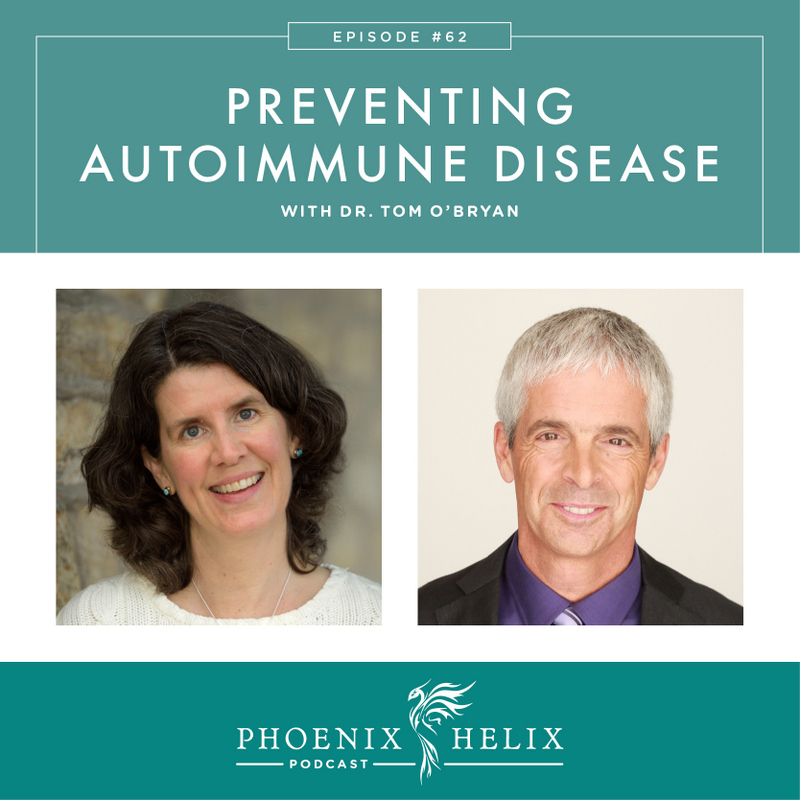
Identifying Yourself on the Autoimmune Spectrum
I have rheumatoid arthritis – a diagnosed autoimmune disease, and most of my readers have autoimmune diagnoses as well. But what if you have symptoms with no known cause? You’ve gone from doctor to doctor, and they simply tell you: “Your lab tests are normal.” While in some ways this is good news, it can also be incredibly disheartening. You have no answers and no direction about what to do next. Dr. Tom O’Bryan is an expert on the development of autoimmune disease, and he writes about the autoimmune spectrum. The autoimmune process begins in our bodies long before enough damage has occurred to warrant a diagnosis. His goal is to help people intervene at this point (or even before they have symptoms) and prevent autoimmune disease before it takes hold. That’s what today’s podcast is all about.
Listen to the Show
- Subscribe to my podcast through your favorite podcast app: iTunes, Stitcher, Google, TuneIn, Spotify, Amazon, etc.
- You can also listen to the episode right here through the player below, and if you subscribe to my newsletter you’ll get notified of future episodes.
Podcast: Play in new window | Download
Show Notes
- Intro (0:00)
- Thank You to Our Podcast Sponsor – Paleo on the Go (2:11)
- A frozen meal delivery service, they have a large menu of items for the paleo autoimmune protocol (AIP).
- Use the code PHOENIX for 10% off your first order.
- Meet Dr. Tom (2:52)
- Dr. Tom O’Bryan worked as a functional medicine practitioner for over 30 years. He holds faculty positions at The Institute for Functional Medicine and the National University of Health Sciences. He’s the author of The Autoimmune Fix and a world-renowned expert on the development of autoimmune disease and its connection to gluten sensitivity.
- When he was a young adult, he actually worked as an artisan bread baker, and had no idea those delicious loaves he made were negatively impacting his health. His blood sugar levels spiked and dipped, and he didn’t understand why he was sleepy in the afternoons and his emotions were erratic. Only when he learned about the glycemic index did he start to change his diet, and the most effective change for him was going wheat-free.
- Health Education in Baby Steps (6:07)
- Dr. Tom recommends people dedicate 1 hour per week to learn more about health. It can be reading articles, listening to podcasts, reading a chapter in a book, reviewing a pubmed study. Pace yourself, and little by little, you will become your own best health advocate.
- What Happens After a Gluten Exposure? (7:05)
- If you have a wheat sensitivity, you can’t reap the benefits of a wheat-free diet unless you give it up 100%. One tiny gluten exposure can create antibodies that can last for up to 6 months. Each of us has a different genetic weak link where those antibodies will attack. For rheumatoid arthritis it’s the joints, for celiac it’s the intestines, for Hashimoto’s it’s the thyroid, etc. If we “cheat” on our diets, we keep inflammation and autoimmune risk active.
- Articles on Gluten Sensitivity and Autoimmune Disease:
- Pubmed research study
- Resource articles on Dr. Tom’s website.
- What Is the Autoimmune Spectrum? (11:36)
- Autoimmune disease develops for years before diagnosis. When you have elevated antibodies but no symptoms, or you have symptoms that aren’t severe enough to lead to an autoimmune diagnosis, you are on the spectrum and at risk for developing autoimmune disease.
- In The Autoimmune Fix, there’s a medical symptoms quiz. We often dismiss negative symptoms as a “sign of getting older”, but we are meant to have good health as we age. Just because things like fatigue, brain fog, and inflammation are all common, does not mean that those symptoms are normal.
- If you’d like to test for antibodies, Dr. Tom recommends the Cyrex Array 5, which can be ordered through his website. When he took this test back in 1997 prior to going paleo, he had elevated antibodies to his brain. That was a wake up call for him.
- Research articles:
- Lupus research that showed elevated antibodies up to 9 years before diagnosis.
- Cancer might have an autoimmune component.
- Heart disease might have an autoimmune component.
- Phase 1 of Dr. O’Bryan’s Diet: No Wheat, Sugar or Dairy (23:23)
- Article: Gluten Sensitivity: Real Disorder. Real Symptoms by Dr. Tom O’Bryan.
- Human beings are the only mammals who continue to consume dairy after infancy. Milk is designed to help a baby grow into a full-grown adult. When people eat dairy after infancy, negative symptoms are common: weight gain, hormone imbalances, chronic sinus infections, autoimmune reactivity, etc. Resource: Whole9’s Dairy Manifesto.
- Sugar negatively impacts your health over 100 different ways.
- The Most Common Mistake People Make When Going Gluten-Free (34:03)
- Eating gluten-free versions of the same food. While they don’t contain wheat, they contain no nutrition either. They also contain additives that can be hard on an autoimmune body, and can be contaminated with gluten unknowingly. Eat real food instead – grassfed meats, wildcaught seafood, vegetables and healthy fats. Shop the perimeter of the grocery store rather than the aisles.
- Gluten Cross-Contamination (37:35)
- FDA Survey into gluten-free foods shows gluten contamination is common in foods often thought to be naturally gluten-free, especially if it’s a packaged food. Oats are the most commonly gluten-contaminated ingredient. Always look for a certified gluten-free label.
- Quinoa is a naturally gluten-free grain from Peru, but now some strains are farmed in the United States, and a study found that 4 of 15 strains of quinoa contained traces of gluten.
- Glutenza – a gluten-digesting enzyme that can help in restaurants when you’re at risk for exposure. This doesn’t make gluten safe to consume in large quantities but can help minimize inflammation from cross-contamination.
- Resource article: Hidden Sources of Gluten
- Should You Get Tested for Celiac Disease Before Going Gluten-Free? (48:27)
- Dr. Alessio Fasano believes you should.
- Dr. Tom believes that celiac disease is just one manifestation of an autoimmune reaction to gluten, so as a test it shouldn’t be prioritized over others. If you want to get tested prior to going gluten free, he recommends a complete wheat sensitivity panel – Cyrex Array 3 (which includes a test for celiac antibodies.) Resource article: The Conundrum of Gluten Sensitivity and Autoimmunity. However, he also believes testing is optional. Doing an elimination/provocation test with gluten can let you know if you have a problem with wheat as well.
- Phase 2 of Dr. Tom’s Diet: AIP (52:27)
- If people don’t see beneficial results giving up gluten, dairy and sugar within 3 weeks, Dr. Tom recommends they progress to phase 2 of his protocol, which is a version of the Paleo Autoimmune Protocol.
- What’s Dr. Tom’s Personal Diet (54:26)
- He is 100% gluten-free and follows a paleo template, with the addition of white rice a few times per week, and a gluten-free blueberry muffin once every few months. He doesn’t have autoimmune disease himself, but did find himself on the spectrum before changing his diet.
- Dark Chocolate as Part of a Healing Diet (55:01)
- Dr. Tom believes a square of dark chocolate a day is both beneficial to health and delicious. His technique for getting the benefits of chocolate without being tempted to overeat: Take a square of high-quality dark chocolate and lay it on or underneath your tongue. Don’t let it touch your teeth. It will dissolve over the course of 2-3 minutes. This activates the release of endorphins (the feel good hormones) in a way that’s uplifting and satiating. People rarely want more than 2 squares.
- Resources:
- Article: Chocolate – Friend or Foe
- Recipe: Flavor-Infused Homemade Chocolates
- Recommended Brands: Taza, Theo, Alter Eco, Equal Exchange, Pascha, and Pure7
- Outro (58:30)
- Dr. Tom’s book is called The Autoimmune Fix. His website is TheDr.com.
- Eileen (your podcast host) is the author of multiple books, written to help people thrive with autoimmune disease. Learn more on the Books Page.
- If you like this podcast, follow or subscribe through your favorite podcast app. You can also subscribe to Eileen’s biweekly newsletter.
- Check out the entire archive of podcast episodes.
You May Also Be Interested In
Spreading the Word
If you like the podcast, please leave a positive review in iTunes. It would mean the world to me, and also helps others find the podcast. Here are some quick instructions using your iPhone:
- If you are already subscribed to my podcast: (1) Click the purple podcast icon. (2) At the bottom of the screen, click Library. (3) At the top of the screen, click Shows. (4) Click the Phoenix Helix podcast image. (5) Scroll down the page, and you’ll see Ratings and Reviews. Scroll down a little bit more and click on Write a Review. This will bring up the review screen. Tap 5 stars (if you love the podcast), and then click in the title box, and it will bring up the keyboard. Enter a title and short review. (6) Click Send in the upper right corner. (7) Thank you! Positive reviews give the podcast a higher search ranking in iTunes, helping people find it and letting them know it’s a quality podcast and worth their time to listen.
- If you haven’t subscribed to my podcast: (1) Click the purple podcast icon. (2) In the lower right corner, click the magnifying class. (3) Type Phoenix Helix in the search box. (4) Click the podcast cover in the Show list. (5) If you’d like to subscribe, click the + sign at the top of the screen. (6) To write a review, scroll down the page, and you’ll see Ratings and Reviews. Scroll down a little bit more and click on Write a Review. This will bring up the review screen. Tap 5 stars (if you love the podcast), and then click in the title box, and it will bring up the keyboard. Enter a title and short review. (7) Click Send in the upper right corner. (8) Thank you! Positive reviews give the podcast a higher search ranking in iTunes, helping people find it and letting them know it’s a quality podcast and worth their time to listen.

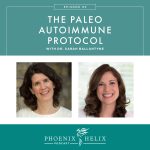

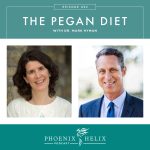
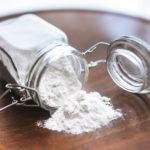
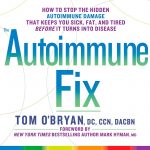


Hi Eileen,
I just want to thank you for your podcasts. I have been listening to almost one a day! Sometimes I’ll repeat one because the information is so good and I need more time to integrate it. I find the podcasts to be authentic, down to earth, focused, and super smart. Thank you for the good work you do for all of us through these interviews. I especially enjoy the body mind connection pieces, and I am particularly interested in the spiritual understanding/connection to healing autoimmune conditions. I have found that for me, truly listening to my body has been one of the greatest gift that my symptoms have given me. They are teaching me to listen and to love myself deeply. My best to you! Blessings!
Laura, thank you so much for your beautiful comment. The podcast is a passion project for me, and I’m so glad it’s resonating with you and others so deeply. Blessings to you, too!
I have Celiac and was skeptical of the quinoa claim, so I ran it by my dad who has a PhD in molecular biology and is the Director of Science at a large biotech company. I found the original scientific paper that “Natural News” referred to and sent that to him. The authors of the study were reticent to claim a complete ban of quinoa for those with Celiac and the Natural News article that interpreted that research grossly misstated what they had found. In addition, my dad also found a study that the same researchers did 2 years later where they fed Celiac patients quinoa daily for 6 weeks to determine the effects and found that there was no reaction by those with Celiac. In short, Dr O’Bryan above needs to continue his research and not use outdated information to back up his bogus claims.
After perusing the site further, Natural News appears to have other sketchy scientific information and is not a source I would trust for an accurate scientific perspective.
You can find the 2nd study with this reference:
Gastrointestinal Effects of Eating Quinoa (Chenopodium quinoa Wild) in Celiac Patients
Victor F. Zevallos , PhD 1, L. Irene Herencia , PhD 2, Fuju Chang , MD, PhD 3, Suzanne Donnelly , PhD 1, H. Julia Ellis , PhD 1 and Paul J . Ciclitira , MD, PhD
Am J Gastroenterol 2014; 109:270–278; doi: 10.1038/ajg.2013.431; published online 21 January 2014
Awesome research, Angie. Thanks for sharing the details.
Quinoa is neither a grain nor a grass. It’s a broadleaf plant, very similar to (and related to) amaranth, so I’m not real sure how it could interbreed with grasses.
I’m not an expert on farming, Dana, so I can’t answer this question. But I did provide a link in the show notes to the report showing gluten cross-contamination in quinoa. Perhaps it’s as simple as crop rotation (with wheat grown in the field one year and quinoa the next.) Or the same machinery used to process gluten-containing and gluten-free grains.
Awesome Podcast, as always! It’s amazing how every time I think “now the PhoenixHelix Podcast can no longer have anything “really new” because you’ve already touched all the subjects I can think of, you come up with a new one just as interesting as the rest… and your show notes are the perfect add-on to the interview because it allows us to dive in deeper, thank you so much for doing this Eileen, it’s an invaluable resource for all of us with autoimmune issues! (I have MS)
What a beautiful comment, Rob. Thank you! This podcast is a labor of love for me, and I have sooooo many more topics in mind. 🙂
Hi Eileen, There’s so much information here, and I’ve just scouted around some of those references. Dr. Tom seems to be saying that Gluten Sensitivity goes hand-in-hand with autoimmune issues and elevated auto-antibodies. The message I’m getting is that the two things are absolutely and always connected – that you can’t have one without the other, it’s an all-in situation. Am I interpreting the information correctly? Or is it possible for autoimmune situations to arise with no gluten sensitivity? I’d be interested if anyone has any light to shine on this. Thanks, A
Hi Angie. I think it’s a very common connection, and there are certainly many functional medicine practitioners who believe you’re playing with fire if you eat gluten and have autoimmune disease. The reason the connection is so strong is that leaky gut is a necessary pre-cursor to autoimmune disease, and gluten has been shown in research studies to widen the intestinal junctions. That said, that doesn’t mean everyone who eats gluten gets autoimmune disease. If that was true, everyone on the planet would have AI. However, autoimmunity is on the rise, which makes one wonder. I think that Dr. O’Bryan is saying that it’s wise for anyone with health issues to find out if gluten sensitivity is at play – either through the test he recommends or an elimination (100% no cheats) followed by reintroduction challenge (or both).
Thanks for clarifying, Eileen, and for the links. It’s pointed out an area which I need to study more and become clearer on. A presto, A
HI Eileen, thanks for the podcast and the great work you always do do putting together all the links and notes.
I was hoping you would have challenged your guest on the dairy issue, as I believe you have a more balanced view. His argument was pretty poor – we are the only mammals that drink milk – we are also the only mammal that use cell phones right? Like many other foods dairy is well tolerated by many people depending on a few things, and can be very beneficial. What are your thoughts?
Hi Michele. Dr. Tom’s diet is an elimination/provocation diet. That means you give the foods up for a minimum of 3 weeks and then you reintroduce to see how your body reacts. He was explaining why he has people remove dairy on phase one of his protocol. He’s correct that it’s problematic for lots of people, so I agree with him that it’s an appropriate member of the “Top 3” foods to remove. Many doctors recommend a gluten-free/dairy-free/sugar-free diet for this reason. You are right that some people will be able to reintroduce dairy successfully but many others won’t. It’s all about learning our personal inflammation triggers. I wish I tolerated dairy myself. I miss butter!
At 53:20 it says there is gluten in lipstick, gluten in _(I word I cant hear)_. It sounds like rooge?
Rouge is another name for blush, David. Dr. Tom was talking about potential gluten exposure through makeup. One certified gluten-free makeup brand is Afterglow Cosmetics.